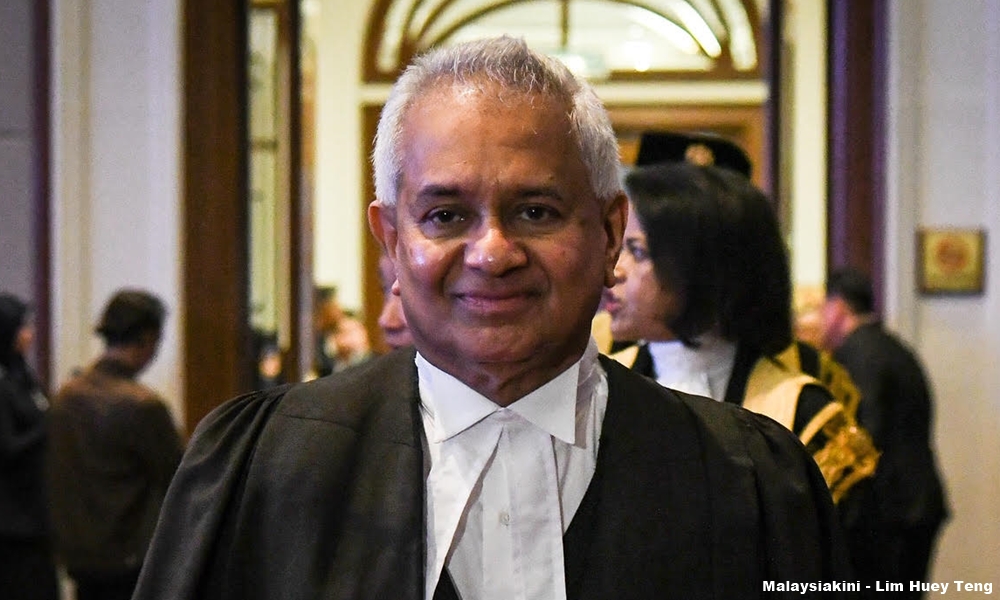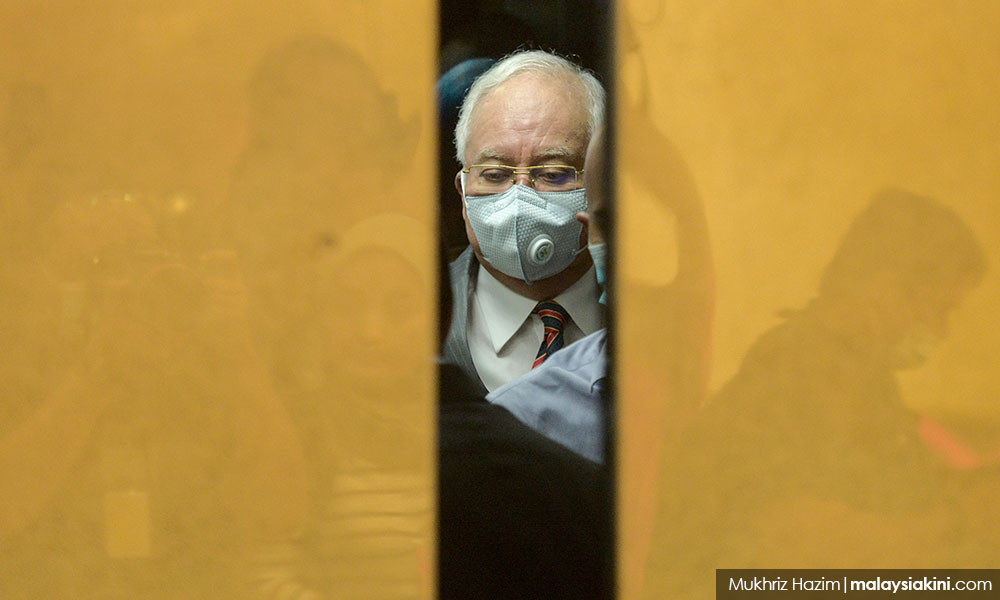BOOK REVIEW | Justice still in the wilderness?
by : R Nadeswaran
BOOK REVIEW | During the most controversial period in Malaysia’s judicial history – starting with the Air Molek case in 1995 and culminating in the sacking of Salleh Abas and the suspension of five Supreme Court judges in 1998, Tommy Thomas was directly involved, if not had a ringside seat.
His latest book ‘My Story: Justice in the Wilderness’, among others, addresses the tumultuous period when the judiciary’s independence was in question. The perceived notion that the executive was imposing its will on the Bench was indeed cemented.
Thereafter, the relations between the Bar and the Bench started deteriorating, and despite some half-hearted attempts, they could hardly be described as cordial. It took some time for the Bar to recover from these events and to begin a meaningful Bar-Bench relationship. The book gives an intrusive insight into that acrimony and what led to Thomas being found guilty of contempt of court.
Although some attempts were made to identify and vilify the perpetrators in the past, nothing had been as scathing as Thomas has done in his book. He has spared no one, including past leaders of the Bench, their henchmen and other minor players who did their bidding.
The Air Molek debacle took several turns at three different levels – the High Court, the Court of Appeal and the Federal Court, where a High Court judge was made (albeit illegally) as a member of the coram.
NH Chan in his Court of Appeal judgment noted sarcastically: “There’s something rotten in this state of Denmark” in an apparent reference to the Denmark House where the higher courts were then situated. But these remarks were subsequently expunged from the records.
Thomas writes expensively of the general elections in 2013 and 2018 and events leading to his appointment as attorney-general. He goes on to rationalise the subsequent decisions to prosecute those involved in the embezzlement of government funds.
He writes at length on the cases involving former prime minister Najib Abdul Razak; the course of events which led to his prosecution and subsequent conviction. He explains in detail on why he opted for prosecutors from the Bar.
He admits that the Attorney-General’s Chambers (AGC) did not have the expertise and experience in handling a case of such importance, especially when the AGC officers only appeared as respondents at the appellate courts in criminal cases.

Hence, he writes: “The only option was to turn to experienced criminal lawyers in the Bar with whom I could work. Many were immediately ruled out because of the conflict-of-interest principle. They had been retained by individuals who thought they may need legal advice for involvement in 1MDB matters.
“The criminal bar at the highest level is thin. It does not possess as wide a base as the commercial or civil bar. Some declined. Gopal Sri Ram was a barrister who was most keen. He sent feelers to me that he was prepared to help.”
The selection was narrowed down to Sri Ram and Sulaiman Abdullah, who had to be coaxed because of his health issues but ultimately agreed to do national service.
“After the MACC delivered its investigation paper (IP) on SRC in mid-June (2019), things dried up. Despite my probing and urging, no other IP was delivered by the MACC in the following two-and-a-half months. I repeatedly mentioned the numerous 1MDB transactions involving multiple parties whereby online publicity had spotlighted the commission of countless crimes.
“Beyond 1MDB, there had been public scandals involving billions of ringgit of trust monies from institutions like the Federal Land Development Authority (Felda), Felcra Bhd, Majlis Amanah Rakyat (Mara), Lembaga Tabung Haji and the like.”
Sri Ram’s brief was to deal with the investigation and prosecution of 1MDB matters. The former Federal Court judge was given a wide-ranging portfolio. He worked well with the deputy director of the MACC, Azam Baki, who was in charge of the investigations of 1MDB matters. Sri Ram was also given an office in the AGC and spent much time with the officers in the MACC.
With Sulaiman’s health not getting better, Thomas had to find someone else and rightly adduced it by saying that “if one is not well, one’s heart and soul is not with work, other concerns predominate.”
In came V Sithamparam, a Penang-based criminal lawyer to be on the SRC case team. Some five months after Thomas left the Chambers, on July 29, 2020, Najib was found guilty on seven charges of abuse of power, criminal breach of trust and money laundering in relation to RM42 million belonging to SRC International Sdn Bhd.
Racism and racists
Thomas also touches on racism and racists. He says that the greatest bogeymen of the Pakatan Harapan administration were DAP leader Lim Guan Eng and himself.
“Both of us were incessantly and unremittingly attacked by bloggers and others on social media. They were supported by Umno and PAS. Umno was upset that I had charged their president, Najib Razak and their deputy president Ahmad Zahid Hamidi for corruption-related offences.
“Other Umno personalities like Tengku Adnan Mansor and Mohd Isa Samad were also charged. So was Musa Aman. All these decisions were personally taken by me.
“What did not interest Umno bloggers was that in each and every of these cases, the IPs were prepared by the MACC, and passed to me, with recommendations to charge. I independently studied the papers, and having satisfied myself that we had a realistic prospect of securing a conviction, decided to charge. No evidence was manufactured. No prosecution witness was asked to lie.”

The contemporaneous documentation in each case, he writes, was overwhelming and adds: “There was every legal reason to prosecute. The law was the only criteria that guided me in the decision-making process concerning Umno prosecutions. But the critics were not interested in truth, facts or the law.
“Everything I did was painted in racial tones and hues. And they succeeded. The brainwashing achieved its objectives. Objectively speaking, attacks on non-Malay holders of two offices in a government otherwise dominated by Malays just did not make any sense. It was neither rational nor logical.
“The prime minister and deputy prime minister were Malay. The majority of the members of the PH cabinet were Malay. Yet the perceived insecurity. It was as if millions of people belonging to the majority race could not sleep soundly because a Chinese was finance minister, and an Indian, attorney-general,” he writes.
Unlike Thomas’ two previous books which were heavy reading, this book is written with candour for the ordinary man. Although excerpts have been previously published, there’s a cache of information which will educate, entertain and inform the reader.
‘My Story: Justice in the Wilderness’ is available at Gerakbudaya at 2, Jalan Bukit 11/2, Petaling Jaya. - Mkini
✍ Credit given to the original owner of this post : ☕ Malaysians Must Know the TRUTH
🌐 Hit This Link To Find Out More On Their Articles...🏄🏻♀️ Enjoy Surfing!




















Post a Comment